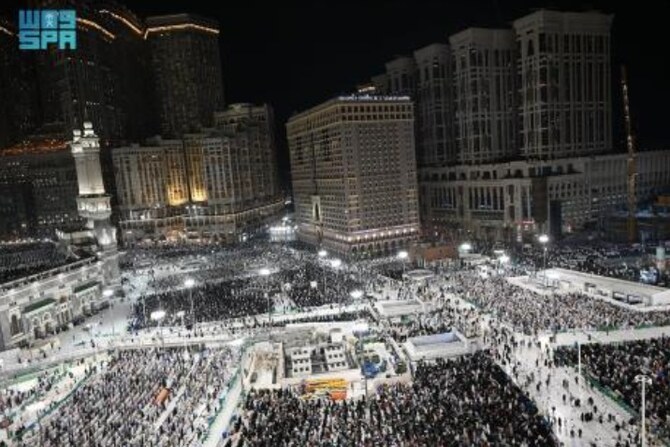RIYADH: Ramadan is a highly popular period to perform the Umrah pilgrimage, and travel agencies and tour operators are cashing in on the festive rush.
Flights from Riyadh to Jeddah are seeing increased demand and surging prices.
“There was an offer on Saudi Founding Day so some people got cheaper tickets, but with the beginning of Ramadan tickets went up,” said Mohammad Aslam Jameel, a travel company supervisor in Riyadh.
“If you are traveling now to Jeddah, the round-trip tickets will cost about SR1,700 ($453) to SR2,000.”
There are comparatively cheaper tickets for odd timings, but they, too, will total about SR1,500 now to SR 2,000 during Qiyam — the last 10 days of Ramadan — he added.
Umrah travel operators in Riyadh have almost doubled the price of the bus tour package to SR200 per person, Mohammed Iqbal, who recently booked an Umrah pilgrimage, told Arab News.
“The huge rush was due to the holy month of Ramadan since most of the people want to spend these days in the holy cities of Makkah and Madinah,” he said.
An employee of Al-Fajr, a tour operator in the city, also added that the increased prices were due to surging demand.
Ticket prices for international flights, too, have soared on dates close to Eid Al-Fitr as many expatriates plan to travel back home.
Asif Ahmed, an Indian working in Riyadh and traveling home for the Eid celebration with his family, told Arab News: “When I had checked the price with the tour operator for the same period two months ago for a round trip, it was about SR2,000. Now the tickets prices for the round trip have soared to SR4,000.”
Syed Faiz Ahmad, a Pakistani expat working in Yanbu, told Arab News: “It’s my 28th year staying in Saudi Arabia. During my early years the cost of air tickets for travel to my native country during Eid was not much, but as the time has passed all airlines have started to raise the prices exorbitantly amid (the) festive rush.
“This has become economically challenging to travel home during holidays especially with family.”
Saudi Arabia’s religious tourism sector is experiencing remarkable growth, with data revealing a sharp rise in travel demand for 2024 and 2025.
Findings from travel booking platform Skyscanner highlight the increasing global interest in pilgrimage travel.
With early 2025 travel data already reflecting strong demand, the trend of growing religious tourism is expected to continue.
January 2025 saw a 21 percent year-on-year increase in flight searches to Saudi Arabia, with peak travel interest centered around March 2025 — coinciding with the start of Ramadan.
Findings for 2024 also revealed spikes around Ramadan (March–April) and Hajj (June).
Madinah has emerged as a key destination for travelers interested in pilgrimage, with searches for flights to Prince Mohammed bin Abdulaziz International Airport rising by 54 percent year-on-year.
Religious tourism remains a cornerstone of Saudi Arabia’s Vision 2030 strategy, serving as a key pillar in the Kingdom’s economic transformation. Significant investments are being made to improve infrastructure, expand flight routes and enhance the pilgrim experience.
Key projects such as the Makkah Route Initiative for Hajj pilgrims and the Haramain High-Speed Railway are instrumental in these efforts.
Countering the trend of surging prices, the railway offered discounts on two-way travel between Makkah and Madinah during the first 20 days of Ramadan.
The railway has also increased Makkah-Madinah trips for the final 10 days of Ramadan to accommodate the surge in Umrah performers during Qiyam Al-Layl, with 130 additional daily trips added, the Saudi Press Agency reported.
The Haramain High-Speed Railway, among the world’s fastest railways with a speed of 300 km per hour, also increased station gate capacity from eight to 24 and added two terminals.
Saudi Arabia sees surging prices for religious tourism amid Ramadan rush
https://arab.news/wxn3a
Saudi Arabia sees surging prices for religious tourism amid Ramadan rush

- Umrah package prices soar amid high demand for pilgrimage to holy cities
- Some international fares double amid festive rush of expatriates going home for Eid Al-Fitr
Saudi minister awards ICDO medal to acting representative of the National Guard

RIYADH: Prince Abdullah bin Bandar bin Abdulaziz, minister of the Saudi Arabian National Guard, awarded acting representative of the National Guard, Maj. Gen. Saleh bin Abdulrahman Al-Harbi with the Knight Medal of the International Civil Defence Organization.
The Knight Medal is a prestigious honor awarded by the ICDO in recognition of exceptional service to the organization and outstanding contributions to advancing civil defence efforts on a global scale.
Pilgrims discover Makkah’s cultural treasures during Ramadan

- Every place carries a story and significant Islamic memory, says tour guide
MAKKAH: Pilgrims in the holy city of Makkah are making the most of their stay by exploring its wealth of historical and cultural sites.
The daylight hours of Ramadan are an ideal opportunity for tourists to enjoy sightseeing tours that enrich both their spiritual journey and knowledge.
Makkah has seen steady traffic to archeological sites, with guided tour buses providing organized visits to key historical locations. These excursions enhance cultural awareness about significant places and give visitors an opportunity to engage with the city’s legacy.
Dr. Fawaz Al-Dahas, an expert Makkah historian, highlighted the importance of enriching pilgrims’ experiences by directing them along established routes, helping them discover the pivotal chapters of the city’s history.
Specialized tourism programs allow visitors to maximize their stay while strengthening their connection to the heritage of the two holy cities.
Al-Dahas emphasized the importance of preserving Makkah’s historical value through visits to archeological sites and first-hand exploration of treasures and museums that highlight its cultural significance.
This helped people truly understand the city, which he described as a “global heritage mine” with outstanding landmarks that make it one of the most important destinations for Muslims around the world.
Makkah also features natural sites of religious and historical importance, such as Jabal Al-Noor (Mountain of Light), the Cave of Hira and the developing Hira Cultural Club, and Mount Thawr,
He added that its unique geography radiated spirituality throughout its mountains and valleys, while traditional markets that served as trade hubs between Syria and Yemen and ancient Islamic fortresses told the story of a glorious past.
Tour guide Mahdi Nafaa Al-Qurashi explained how Makkah has witnessed defining moments in Islamic history, from Prophet Ibrahim’s call through to the life of Prophet Mohammed and his companions.
He said every location in Makkah carried a story and significant Islamic memory, as the routes leading to the holy city and surrounding the Holy Kaaba were rich with landmarks tied to pivotal events.
Mohamed Salama, an Egyptian pilgrim, said visits to the holy sites had been simplified by the available facilities and electronic visas. He appreciated how everyone worked to ensure pilgrims’ comfort and ensure their experience was as good as it could be.
Despite dealing with millions of visitors, he described the organization as “exceptional, creating a wonderful blend between spiritual worship and exploration of Makkah’s historical richness.”
Rabab Hussein, an Iraqi making her first visit from Manchester, in the UK, described the harmony between historical and spiritual depth as unique to Makkah and Madinah.
“The place has its own majesty and ancient historical extension, with its mountains and stones guiding you to historical stories of prophets and messengers,” she said.
The place made a special impression on first-time pilgrims, she added, and visiting Makkah went beyond performing rituals — it was a chance to gain insights into its history.
How researchers in Saudi Arabia leveraged AI in the fight against plastic pollution

- Researchers at King Saud University used artificial intelligence to design peptides that bind to plastic particles
- Microplastics can persist in the environment for centuries, posing risks to ecosystems and human health
RIYADH: In a groundbreaking scientific effort, researchers have leveraged artificial intelligence to unlock a powerful new tool in the fight against microplastic pollution — microscopic protein fragments known as peptides.
These AI-engineered peptides can bind to plastic particles, making it possible to remove microplastics from water more efficiently.
Microplastics — tiny plastic fragments smaller than five millimeters — are now alarmingly widespread in oceans, rivers, soil, and even human bodies. These particles persist in the environment for centuries, threatening ecosystems and public health.
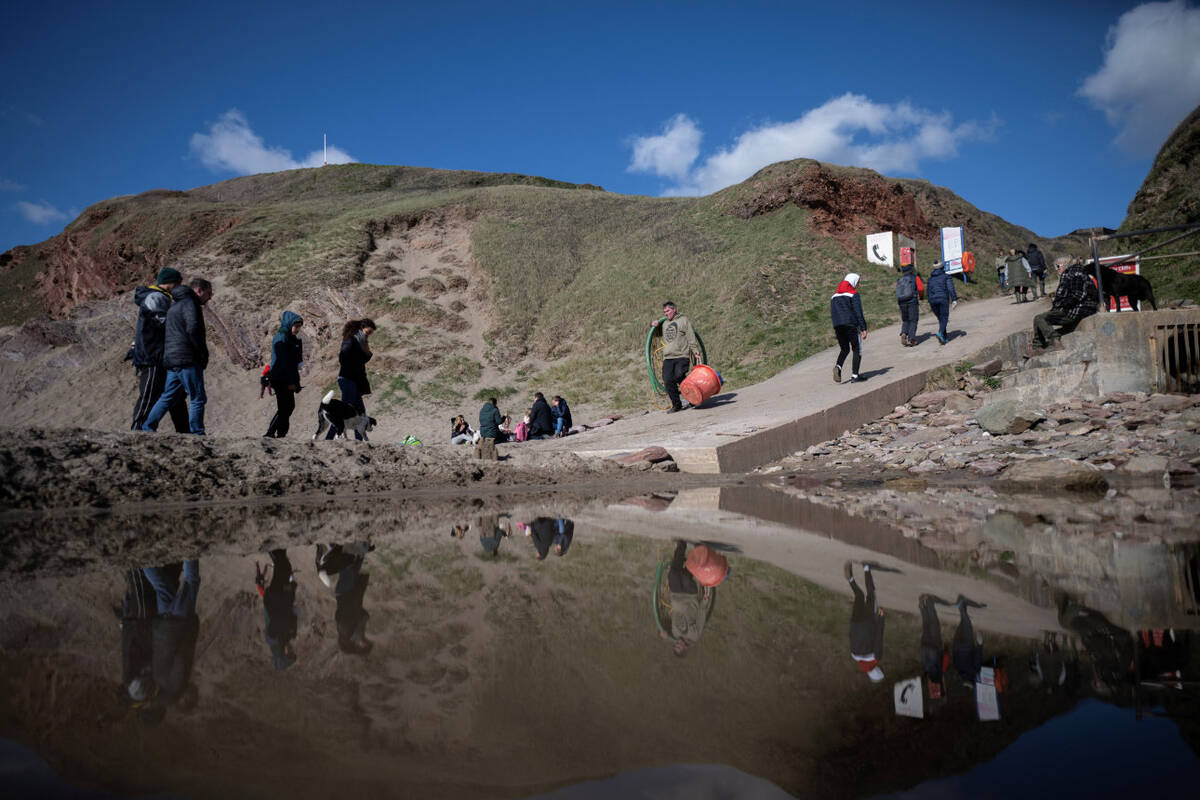
Traditional cleanup methods have struggled to address this growing crisis. Now, a team of scientists from Saudi Arabia, the US and beyond has unveiled a revolutionary solution: biodegradable peptides that latch onto microplastic particles with impressive precision.
Discovered using advanced deep learning models, these peptides could mark a turning point in the global fight against plastic pollution.
“We combined advanced biophysical simulations, which show how short proteins behave on plastic surfaces, with deep learning or AI to spot hidden patterns in those simulations,” Abdulelah Al-Shehri, assistant professor of chemical engineering at King Saud University and the study’s co-author, told Arab News.
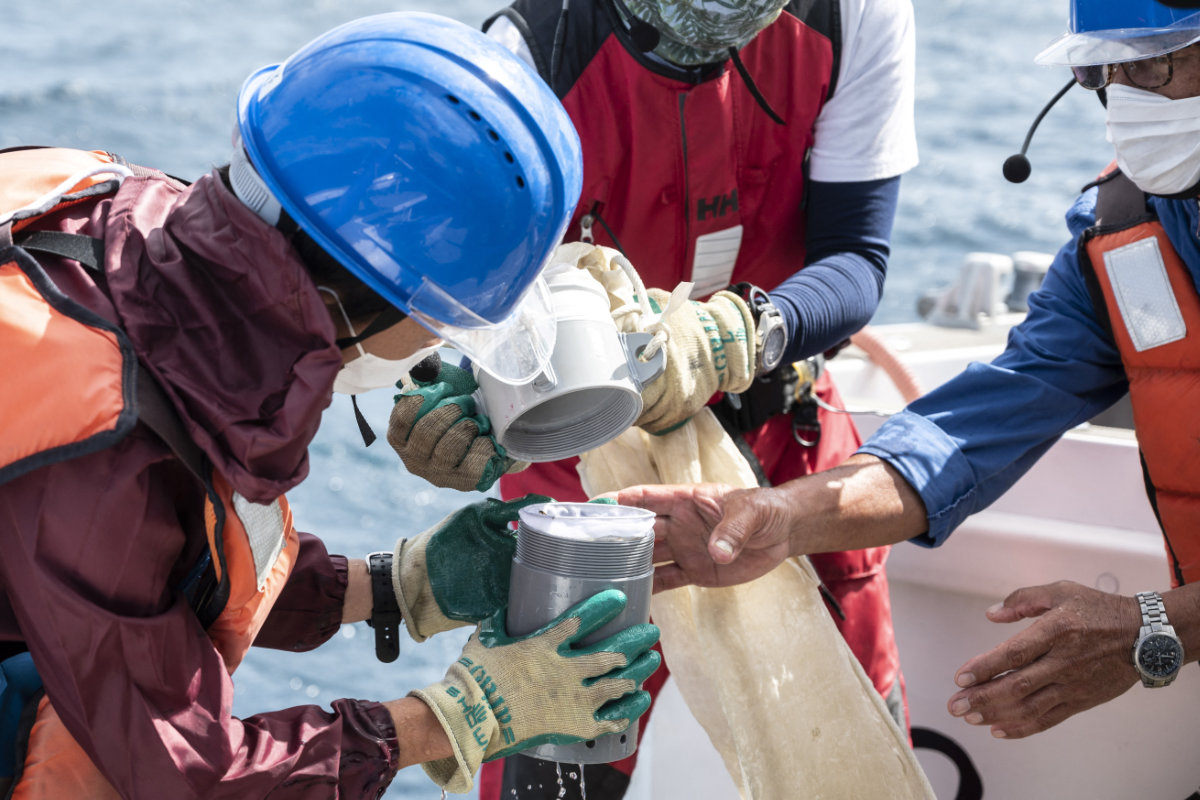
“This allowed us to pinpoint specific peptides that latch onto microplastics up to 34 percent more effectively than older methods.”
Unlike conventional filtration methods, these AI-guided peptides offer a scalable, biodegradable alternative that could transform microplastic remediation.
“Essentially, AI guided us to protein sequences that traditional approaches might miss, leading to stronger and more efficient cleanup capabilities,” Al-Shehri added.
While this discovery was initially made in a computational setting, laboratory tests have confirmed the peptides’ real-world potential.
“We recently ran experiments to evaluate how strongly the AI-designed peptides bind to plastic,” Michael Bergman, a PhD candidate at the Department of Chemical and Biomolecular Engineering at North Carolina State University, told Arab News.
“No one has designed plastic-binding peptides before, and we relied solely on computational predictions for peptide design, so we were curious to see how our computational predictions bear out in experiment.
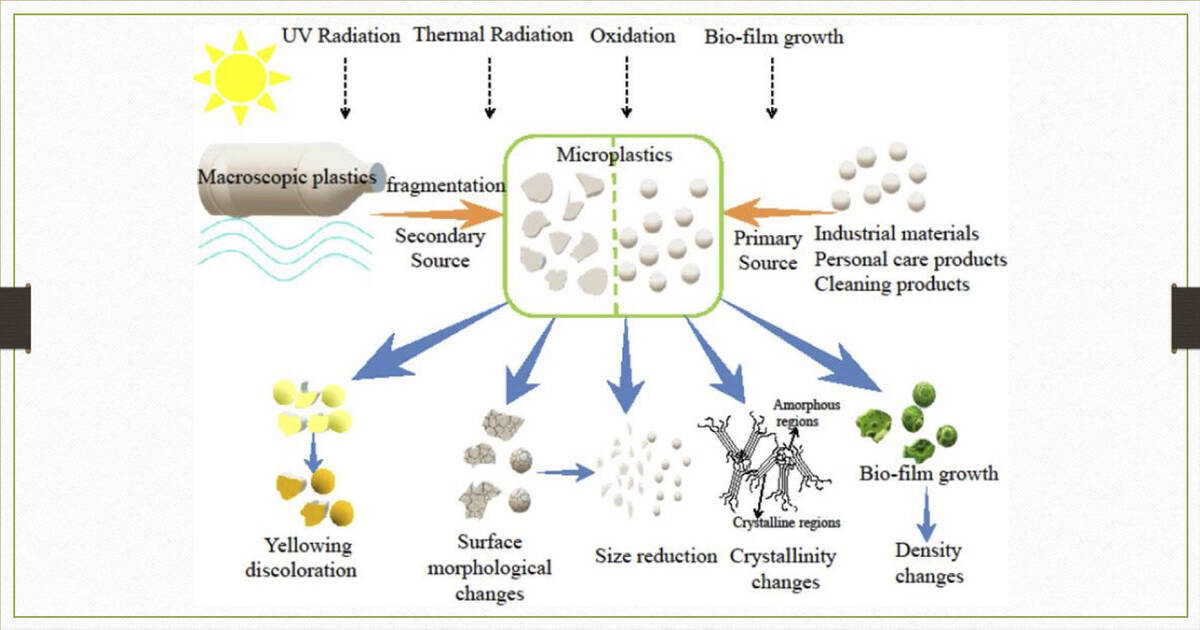
“Excitingly, the AI-designed peptides did very well. The peptides had much higher affinity for plastic compared to random sequences of amino acids and performed as well as our best biophysical designs.
“This work will hopefully be published in the coming months. Having checked this box, the next step is to apply the peptides to remediate microplastic pollution.”
Bringing these peptides from the lab to real-world applications presents a major challenge: scalability.
“A major obstacle is producing these specialized peptides on a large scale while ensuring they remain stable and effective in different aquatic environments, whether in fresh, salt or even grey water,” Al-Shehri said.
“Beyond manufacturing, there needs to be close collaboration among researchers, policymakers and industry to streamline regulations, secure funding and ensure safe, cost-effective deployment where pollution is most critical.”
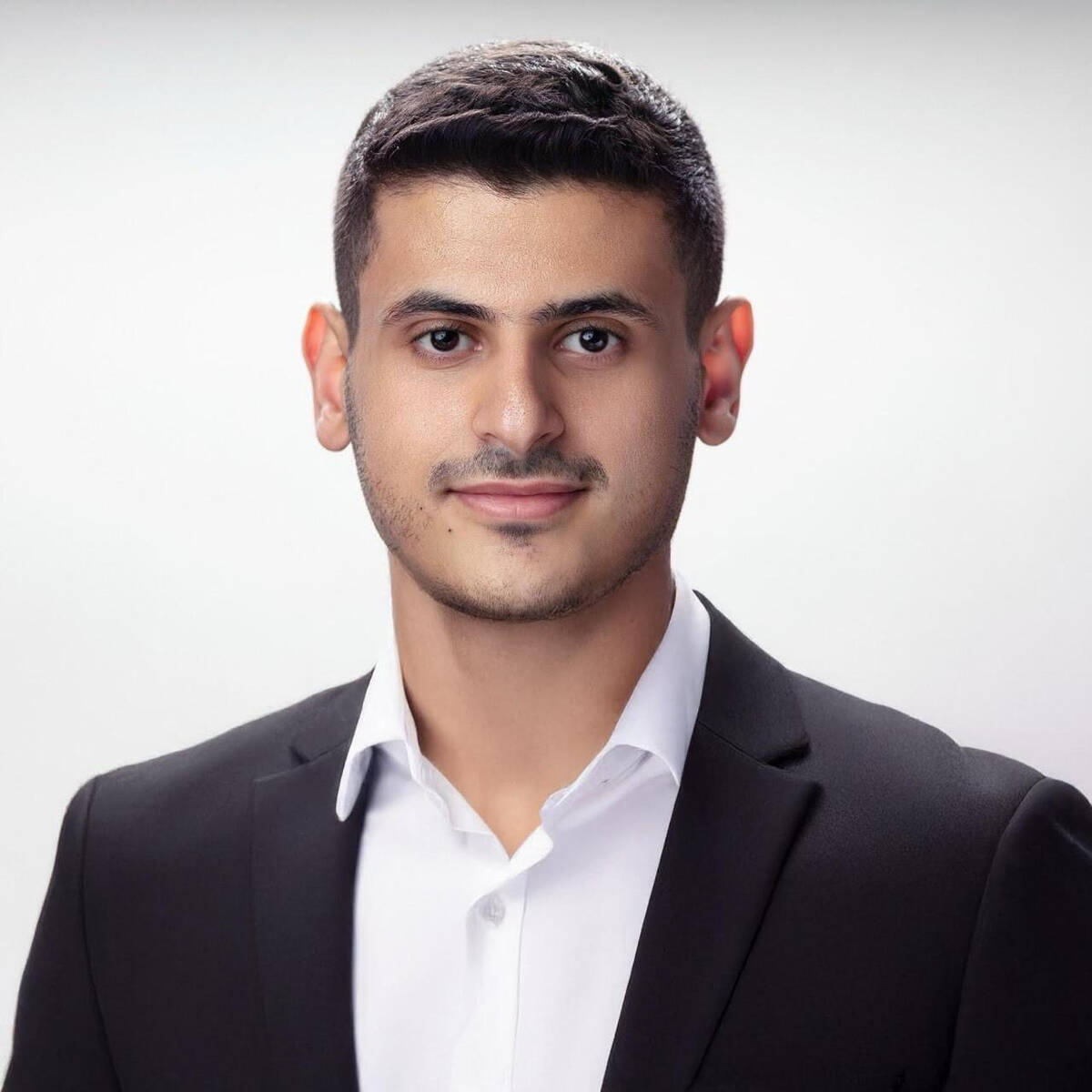
Bergman agrees, highlighting the vast potential applications of these peptides.
“We see many possible applications, such as detecting (and perhaps quantifying) microplastic pollution in water using a biosensor, removing microplastics either through filtration or by inducing aggregation, and aiding the adhesion of plastic-degrading organisms to microplastics,” he said.
This breakthrough is particularly relevant for Saudi Arabia, which is balancing its ambitious sustainability goals with its role as a global petrochemical leader.
Maher Al-Rashed, associate professor in plastics science at King Saud University, sees this dual role as an opportunity rather than a conflict.
“Saudi Arabia’s ongoing transition toward sustainability, particularly through Vision 2030, offers a fertile ground for the integration of AI-driven biodegradable peptides as part of a multifaceted strategy to combat plastic pollution,” he told Arab News.
“A practical application could involve incorporating these peptides into wastewater treatment plants in cities like Riyadh and Jeddah, where microplastic contamination in water sources has been documented.”
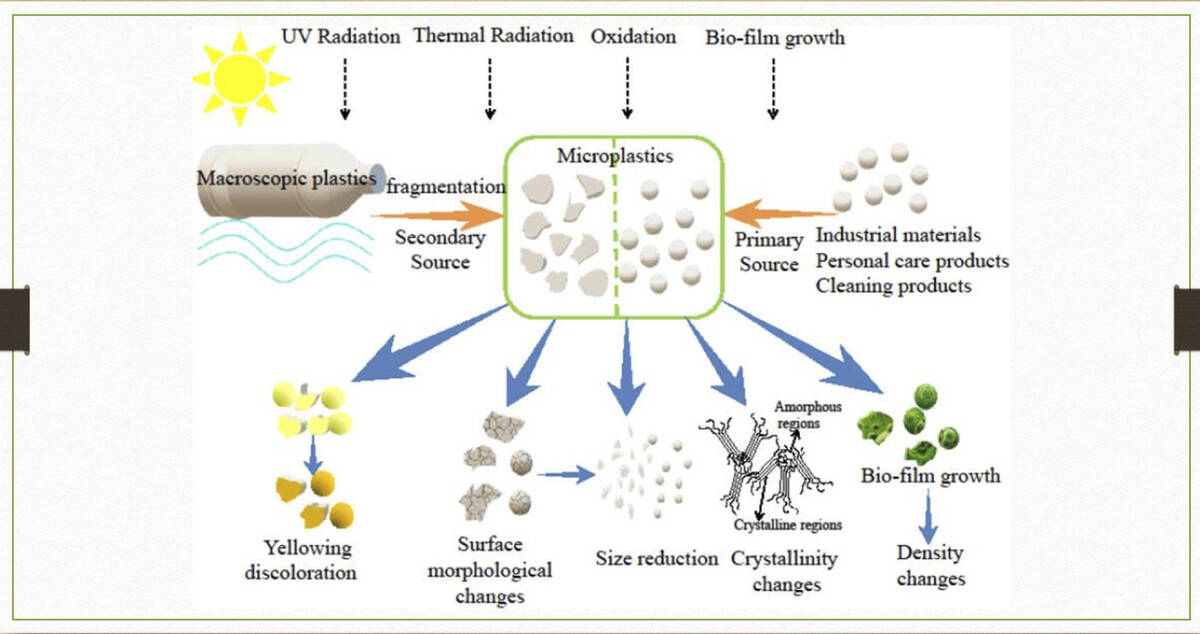
He also referenced international benchmarks such as France’s Carbios and Japan’s Ideonella sakaiensis as models for Saudi Arabia to adapt and lead in this space.
“Saudi Arabia could adopt similar AI-engineered enzymatic solutions, particularly in industrial zones like Jubail and Yanbu, where high plastic waste output necessitates sustainable disposal methods,” he said.
While peptides offer a powerful new tool for microplastic cleanup, experts stress that they are not a replacement for reducing plastic waste at its source. “Reducing plastic use is crucial to stem the flow of new pollutants,” said Al-Shehri.
“However, we already have a staggering amount of microplastics in circulation, some of which may persist for centuries. AI-powered strategies like our peptide designs serve as a necessary complement to source reduction, actively targeting and removing existing contaminants while broader efforts to improve recycling continue.”

Al-Rashed agrees but adds that for these peptides to be effective long term, they must be optimized for various types of plastics and environmental conditions.
“One fundamental challenge is ensuring that these peptides exhibit substrate specificity… meaning they must effectively degrade a variety of plastic polymers such as polyethylene, polypropylene and PET without harming natural organic matter,” he said.
He also emphasized the importance of ensuring environmental safety.
“AI-driven peptides must degrade into environmentally safe byproducts. Research conducted by Saudi Arabia’s King Abdulaziz City for Science and Technology is exploring how peptide-mediated polymer degradation can be designed for maximum ecological safety.”

Bringing these peptides from theory to widespread use requires clear regulatory frameworks. Al-Rashed stressed the need for biosafety and industrial scalability.
“From a regulatory perspective, Saudi Arabia would need to establish stringent biosafety and environmental risk assessment protocols before approving the environmental release of AI-engineered peptides,” he said, referencing the role of the Saudi National Center for Environmental Compliance.
On an industrial level, he pointed out that cost efficiency and integration with existing waste management systems would be key factors in success.
“Saudi Arabia’s municipal waste collection and processing facilities are currently optimized for mechanical and chemical recycling, meaning that transitioning to bioenzymatic plastic degradation would require significant infrastructure modifications,” he said.

As Saudi Arabia explores this innovation, researchers like Al-Shehri emphasize the importance of framing the message carefully — especially in a country where the plastics industry is economically significant.
“In essence, microplastic research is as critical as the plastics industry itself,” Al-Shehri said. “We must balance the lifesaving benefits of plastic with urgent research to eliminate and remove these tiny particles from our environment.
“Propelled by innovative academic efforts, short peptides now shine as a new technology in the global effort to combat microplastic pollution. Yet forging true progress — and preserving the plastics industry’s long-term viability — demands concerted efforts and research among governments, industries, academic institutions, and communities alike.”
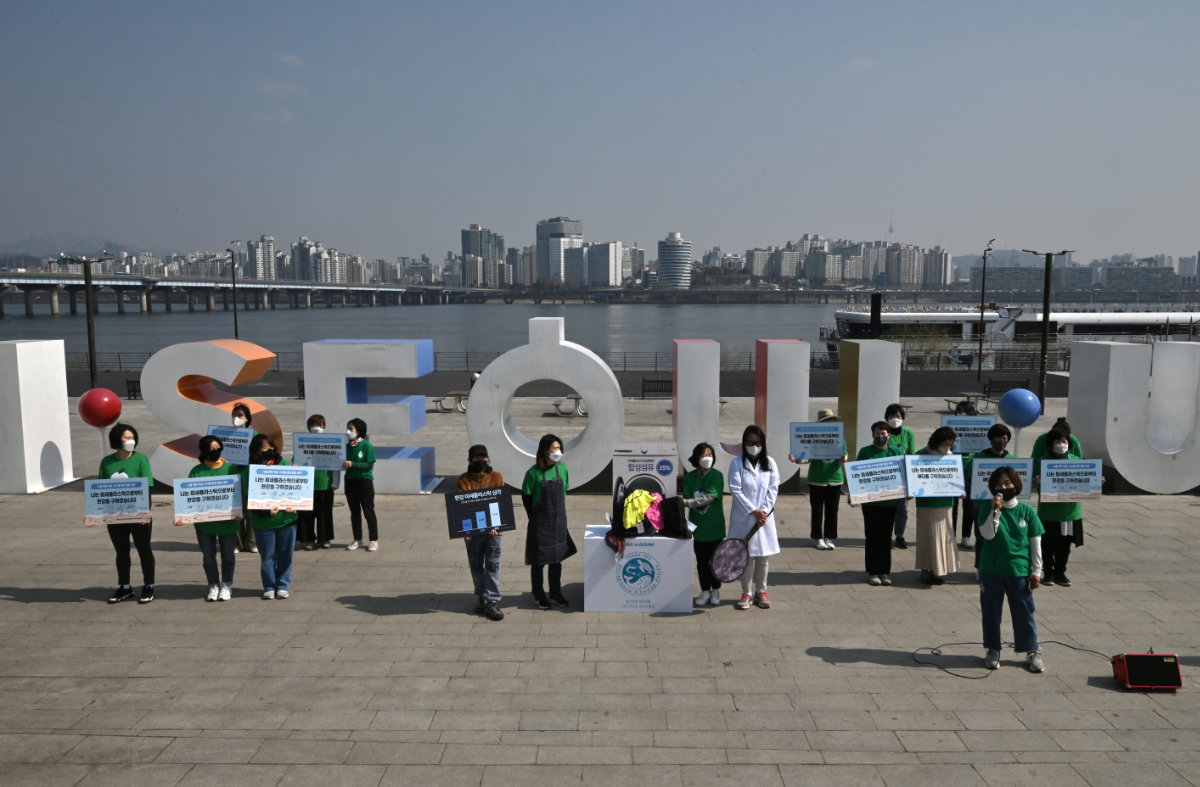
As researchers worldwide explore how AI can revolutionize science and sustainability, the development of microplastic-binding peptides stands out as a clear example of how data, biology, and innovation intersect.
“There are almost endless possibilities in combining AI with biophysics,” said Bergman. “Of particular relevance to plastic and microplastic pollution is the development of enzymes that break down plastics.
“In recent years, biophysics-guided AI helped optimize an enzyme that rapidly breaks down the plastic PET. Other researchers are looking to optimize similar enzymes for other common plastics like polystyrene and polyethylene.”
From the lab benches of Riyadh to simulation labs in North Carolina, one message rings clear: AI has the potential to reshape how we approach one of the planet’s most pressing environmental challenges — and Saudi Arabia is ready to lead the charge.

Environment ministry intensifies inspection campaigns in Hail

HAIL: The Saudi Ministry of Environment has intensified its field monitoring campaigns in Hail.
These efforts focus on slaughterhouses, as well as meat, vegetable and fruit markets, to ensure compliance with precautionary measures and health regulations. The initiative aims to guarantee the safety of food products in preparation for Eid Al-Fitr.
Fahd bin Muidh Al-Hasani, director general of the ministry’s Hail branch, said that monitoring teams operated around the clock. They followed a field plan that included health, awareness and guidance inspections, with increased field visits to public markets and slaughterhouses during the Eid Al-Fitr holiday, particularly during peak times when consumer demand was high.
He said that the teams were actively engaged in sanitation and disinfection of slaughter areas to ensure a healthy and safe environment, and emphasized that the regulatory teams would impose the strictest penalties on those who violated health and safety protocols.
He urged store owners to adhere to the regulations and guidelines to avoid penalties that would be enforced in accordance with legal procedures.
Al-Baha prepares massive holiday celebration

AL-BAHA: Residents and visitors to Al-Baha region will experience a festive atmosphere this Eid Al-Fitr as local authorities launch an ambitious program featuring 55 recreational and cultural events across the city.
The municipality has embarked on extensive decorative efforts, adorning the cityscape with 45 artistic sculptures and illuminating 30,000 linear meters of street lamps with decorative lighting. Festive Eid greetings now grace bridge panels, tunnel displays, and electronic screens throughout the region.
“We have prepared 142 parks and gardens and 27 municipal plazas to welcome families during the holiday period,” Al-Baha Mayor Ali bin Mohammed Al-Sawat said.
“These venues, along with specially designated event locations in Al-Baha city and surrounding governorates, will serve as gathering points for our communities.”
Key celebration hubs in Al-Baha city include the popular Raghadan Forest Park, Prince Hussam Park in Al-Qayyim, the Market Square in the central district, and the scenic walkway along Imam Mohammed bin Saud Road in Al-Hawiyah.
According to the mayor, the festivities have been designed to accommodate everyone in the community — from children and families to elderly residents, youth groups, and people with disabilities.



